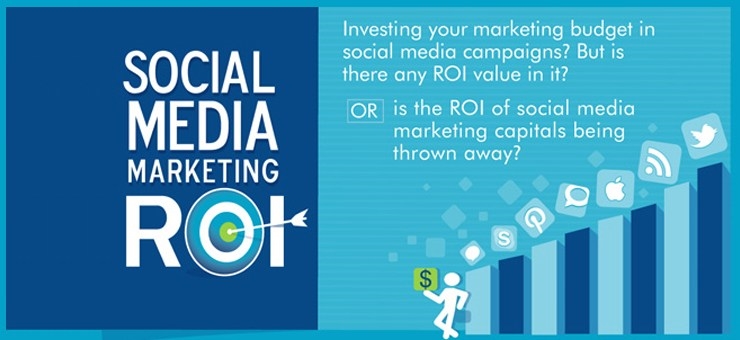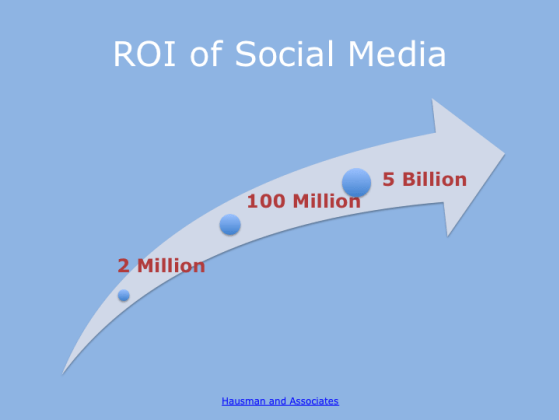— December 8, 2017
I love teaching bright, young college students for a number of reasons, but one is that I learn a lot from them. This week, students are finishing up presentations on the marketing plan they developed, which gave me great insights on how Millenials view social media–as a marketing strategy. However, social media isn’t a strategy, social media is a marketing channel.
In many of the presentations, students said their promotional strategy relied on social media either by itself or supplemented with other channels like TV. Unfortunately, I don’t think my students are isolated examples of this misconception. For instance, I have clients come in with proposals from other marketing firms and see a similar mistake in their thinking–and these are folks who make a living through their marketing expertise. I also see proposals that include “viral marketing” as a strategy. It’s really sad (and potentially a disaster for firms who rely on this crappy advice).
So, my goal is to debunk this misconception. In today’s post you’ll learn:
- The difference between a marketing channel and marketing strategy
- Why the proper way of thinking is that social media is a marketing channel
- The value of using social media as a marketing strategy, not a channel
The difference between a marketing channel and a marketing strategy
A marketing channel
Don’t be confused as one of my students was when I say social media is a marketing channel. It’s not a channel of distribution, which is what first comes to mind when marketers hear that term. I use the term “marketing channel” in this context to mean it’s a channel of communication. And, there are a bunch of them. Here’s a list of 113 different marketing channels compiled by Smart Insights (you can purchase their complete list for about $ 25–although I can’t imagine why you would).
Grouping subcategories together, here’s a partial list of marketing channels:
- Broadcast TV — ABC, NBC, CBS, PBS, Fox
- Cable TV
- Radio
- Print — magazines, newspapers
- Direct — mail, telemarketing
- eMail marketing
- Social media marketing — paid, owned, earned
- Outdoor — billboards, bus benches …
- Mobile
Social media isn’t a strategy any more than TV is a strategy. It’s simply a channel of communication.
Social media strategy
In contrast, social media strategy encompasses WHAT you say rather than where you say it and that’s the part that delivers rewards. In order to make social media effective as a channel, you need to first develop a strategy for delivering on the value. Developing a strategy, social media or otherwise requires the following 5 steps [cite]:
- Perform a situation analysis — basically a snapshot of where the business is now.
- Describe your target audience in terms of demographics, psychographics, geography, and behaviors. Increasingly, firms develop rich personas for this purpose.
- Set marketing goals, which should be SMART goals.
- Marketing communications strategies and tactics, such as how you will create engagement on social networks through content marketing.
- Set your marketing budget.
Social media is a marketing channel
Using social media as a marketing channel requires significant modifications to your communication strategy over using traditional media. Here’s an article highlighting the many differences, which result in a paradigm shift from the way we’ve always looked at channels of communication.
Most of these differences center around the key word — social. Social media feels like one-on-one conversations instead of mass communication, despite the fact that it is, in reality, mass communication. And, it’s highly targeted, which is part of what delivers on the value of its use.
The value of social media as a marketing strategy

Social media marketing isn’t a panacea for what’s wrong with your market performance. It does have some advantages, though, when it comes to profitability:
- In general, social media is less expensive than other communication channels. For instance, a single Super Bowl ad was over $ 5 million last year.
- Social media is more highly targeted than any other communication channel
- so your performance per person reached is likely greater.
- Social media is more flexible since you can, if necessary, instantly spread your message rather than having long wait times, which may be months for print ads in magazines.
- The two-way nature of social media allows you to provide superior customer service by responding to complaints in real-time or near real-time.
- Your network helps spread your message to new viewers, which increases your reach at no additional cost. See an example below based on 2 million initial reach.
- Not only does your network engage with your brand to spread reach (if you’re successful), but their shares are more impactful because they’re seen as word of mouth recommendations rather than advertising [cite].
- Consumer-generated content both acts as word of mouth and gives you valuable access to consumer attitudes, behaviors, and unmet needs.

Digital & Social Articles on Business 2 Community
(61)








